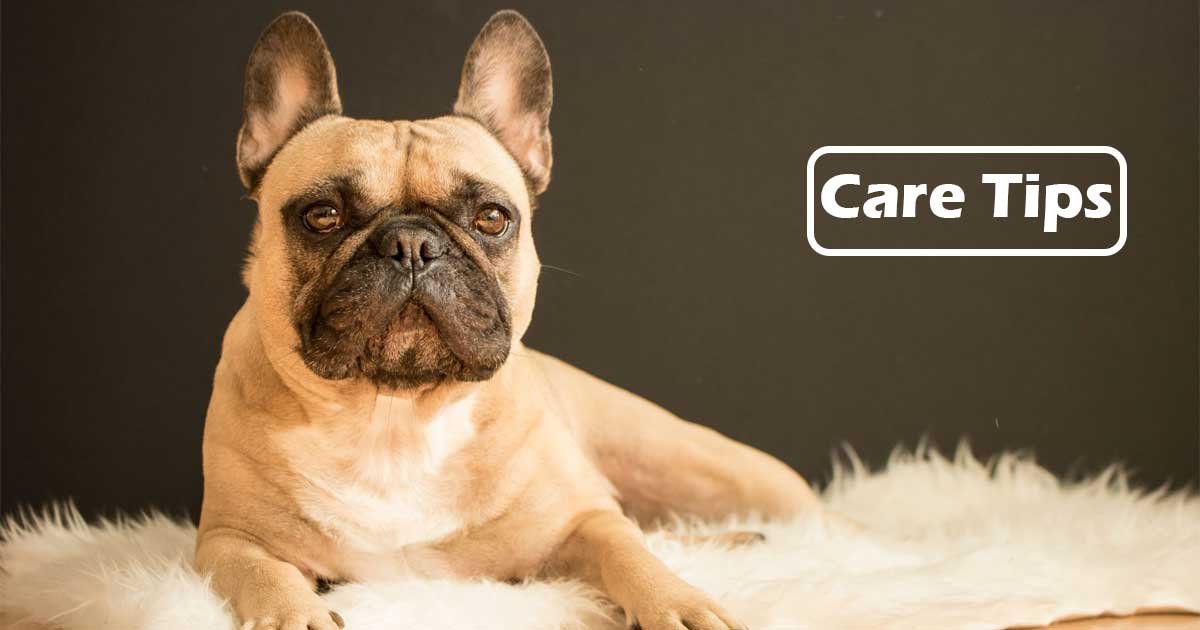French Bulldogs Hypoallergenic:Myths, Facts & Care Tips
French Bulldogs are not hypoallergenic, despite what some pet lovers may believe. Their short hair and small size may seem less threatening, but they still produce allergens like dander, saliva, and skin oils that can trigger reactions in sensitive people.
Allergens from French Bulldogs are found in their saliva, urine, and especially in microscopic skin flakes that float in the air. These particles stick to furniture and fabrics, making it easy for allergic reactions to develop—even with good grooming.
That said, many allergy sufferers manage well with Frenchies by following strict grooming routines, cleaning habits, and using allergy aids like HEPA filters or medications. Compatibility depends on your individual allergy level and how proactive you’re willing to be.
- French Bulldogs are not hypoallergenic
- Allergens come from saliva, dander, and urine
- Their short coat still sheds year-round
- Puppies may cause fewer symptoms temporarily
- Grooming and cleaning routines help manage allergens
Let’s break down everything you need to know about French Bulldogs and allergies, so you can decide if a Frenchie is right for your home.
What Does “Hypoallergenic” Mean in Dogs?
The term “hypoallergenic” is commonly misunderstood in the pet world. Many people think it means a dog will not cause allergic reactions at all, but that’s not accurate. In reality, it simply means the dog is less likely to cause symptoms—not immune from doing so.
Dogs that fall under the hypoallergenic label usually shed less or have coats that trap allergens such as dander and saliva. Breeds like Poodles or Bichons have curly coats that keep allergens from becoming airborne, making them a better choice for allergy-prone individuals—but not a guaranteed solution.
No dog breed is 100% free from allergens. Proteins found in their saliva, skin flakes (dander), and urine are the main sources of allergic reactions. Even breeds advertised as hypoallergenic can still trigger sneezing, itching, or respiratory symptoms in sensitive people depending on their allergy level.
- Hypoallergenic ≠ allergy-free
- Refers to reduced allergen levels
- Proteins in saliva and dander cause reactions
- Coat type influences allergen spread
- Marketing often misuses the term
Understanding this term can help you manage your expectations before adopting a dog.
Are French Bulldogs Hypoallergenic
French Bulldogs are not classified as hypoallergenic by veterinarians or major kennel clubs. Though they have short, sleek coats, this does not prevent them from producing allergens at levels similar to other dog breeds. Their size and appearance can be misleading when it comes to allergy concerns.
The main sources of allergens in French Bulldogs are proteins found in their saliva, dander, and urine. These proteins easily spread throughout the home—especially since Frenchies enjoy close contact, frequent licking, and curling up on beds and furniture. Their affectionate behavior increases exposure to allergens without you realizing it.
Some allergy sufferers report milder symptoms with French Bulldogs compared to heavy-shedding or double-coated breeds. However, reactions are highly individual, and even low-shedding dogs like Frenchies can cause significant discomfort. It’s impossible to predict exactly how a person will respond without direct exposure and testing.
- French Bulldogs are not hypoallergenic
- Allergens exist in their saliva, skin, and urine
- Their affectionate nature increases exposure
- Coat length doesn’t determine allergen level
- They’re not recognized as low-allergen by any registry
- Each person reacts differently
- Allergy testing is advised before adoption
Knowing this early can prevent disappointment and help you prepare better.
Allergens French Bulldogs Produce
French Bulldogs produce three primary allergens that affect sensitive individuals: dander, saliva, and urine-based proteins. These substances are natural byproducts of their bodies and are among the most common causes of pet-related allergic reactions in humans.
Dander consists of tiny flakes of dead skin that shed continuously and float through the air. Because they are microscopic and lightweight, these particles can linger in your home for hours and easily settle on carpets, bedding, and furniture. Meanwhile, saliva spreads allergens when your Frenchie licks itself, its toys, or even you.
Though often overlooked, urine also contains allergenic proteins that dry on surfaces like grass, pee pads, or floors, becoming airborne dust particles. When all three sources—dander, saliva, and urine—are combined, they significantly raise the allergen load in your environment, making French Bulldogs a real challenge for those with allergies.
- Dander is the most common allergen
- Saliva contains allergy-triggering proteins
- Urine contributes to airborne allergens
- Allergen particles can stick to furniture and clothing
- Frenchie’s lick often, spreading saliva allergens
Understanding these sources helps target the right strategies for allergen control.
Why French Bulldogs Can Trigger Allergies
French Bulldogs are extremely affectionate and crave constant human interaction. They love to cuddle, climb onto laps, sleep in their owner’s bed, and follow family members around the house. While adorable, this behavior leads to frequent exposure to allergens like dander and saliva, which can easily transfer to clothes, bedding, and furniture.
Their signature facial folds, while cute, can become hidden hubs for allergens. These folds often collect moisture, food debris, bacteria, and skin oils—creating ideal conditions for allergens to thrive. If not cleaned regularly, they can worsen allergy symptoms by harboring irritants right where humans are most likely to kiss or pet.
As a brachycephalic breed, French Bulldogs have flat faces that affect their breathing. This can lead to snorting, wheezing, and occasional nasal discharge, all of which may release microscopic allergens into the air. These airborne particles can linger in enclosed spaces, increasing allergy risks for anyone nearby.
- French Bulldogs crave close contact
- Snuggling and licking increase allergen spread
- Facial folds trap moisture and dander
- Brachycephalic snouts can expel allergens into the air
- They often sleep on beds and couches
- Constant companionship = more exposure
- Hidden allergens may linger in skin creases
Managing French Bulldog allergies requires more than just brushing—it requires awareness of their physical traits too.
French Bulldog Shedding
Many assume that French Bulldogs don’t shed much because of their short, smooth coats—but that’s far from the truth. Frenchies shed moderately all year round, with noticeable increases during spring and fall when seasonal changes affect their hair cycle.
While their fur may be short, it’s incredibly fine and clings stubbornly to clothes, carpets, couches, and car seats. Even though the shedding might not be visibly heavy, these hairs are effective carriers of dander and allergenic proteins, especially for sensitive individuals.
This short-haired shedding creates a misleading perception of being low-maintenance. In reality, French Bulldogs can contribute as much to indoor allergens as larger or long-haired breeds, especially without regular brushing and a clean home environment.
- Frenchies shed year-round
- Peak shedding occurs in spring and fall
- Short hairs stick to fabric surfaces
- Shedding releases dander into the air
- Vacuuming is essential to reduce buildup
Proper grooming and cleaning routines are key to managing this aspect of Frenchie ownership.
Grooming Tips to Minimize Allergens
Grooming is one of the most effective ways to control allergens. Brushing your Frenchie 2–3 times a week removes loose hairs and skin flakes before they spread.
Bathing every 2–4 weeks with a hypoallergenic shampoo helps wash away dander and saliva buildup. Focus on cleaning between the folds on their face, armpits, and tail base.
Use grooming wipes between baths for quick cleanups. This keeps their skin healthy and reduces the allergens they bring into your environment.
- Brush 2–3 times per week
- Use hypoallergenic dog shampoo
- Clean facial and skin folds carefully
- Bathe every 2–4 weeks
A grooming routine is your first line of defense against Frenchie allergens.
Cleaning Habits for Allergy-Safe Homes
Living with a French Bulldog and allergies means stepping up your cleaning game. Vacuum your home at least twice a week with a HEPA filter vacuum to trap small particles.
Wash bedding, toys, and blankets weekly using hot water and pet-safe detergent. Dander and saliva stick to fabrics and can stay active for days if not cleaned.
Invest in a good air purifier with a HEPA filter for your main living areas. These can drastically reduce airborne allergens and improve air quality for sensitive individuals.
- Use a HEPA vacuum cleaner regularly
- Clean pet bedding and toys weekly
- Use air purifiers in high-traffic areas
- Don’t forget curtains, rugs, and upholstery
- Wipe surfaces daily to reduce dust
A clean environment is essential when managing pet allergies, especially with affectionate breeds like French Bulldogs.
French Bulldog vs Other “Hypoallergenic” Breeds
While French Bulldogs aren’t hypoallergenic, some breeds are considered lower risk for allergy sufferers. These include Poodles, Bichon Frises, and Schnauzers—all known for their unique coats.
Unlike Frenchies, these breeds either have curly hair that traps dander or shed very minimally. This limits the spread of allergens throughout the home.
However, they often require more grooming and training than a laid-back Frenchie. Choose based on your allergy level and lifestyle needs.
- Poodles: curly coats, low shedding
- Bichon Frises: soft fur traps dander
- Schnauzers: wiry coat, minimal dander
- French Bulldogs: shed dander freely
- Frenchies require less grooming effort
- Hypoallergenic breeds may need more maintenance
Always weigh grooming needs and temperament along with allergy concerns before choosing a breed.
FAQs
- Can I own a French Bulldog if I have mild allergies?
Yes, many people with mild allergies manage well with proper care and cleaning routines. - Do female French Bulldogs cause fewer allergies than males?
There’s no significant difference in allergen levels between males and females. - What’s the best air purifier for pet dander from Frenchies?
Look for HEPA filters and activated carbon filters for best results. - How can I allergy-proof my home for a French Bulldog?
Focus on air filtration, frequent vacuuming, and cleaning pet bedding weekly. - Are there allergy medications safe to use around dogs?
Yes, antihistamines are often recommended, but always consult a doctor first.
Conclusion
French Bulldogs are lovable and loyal, but they’re not hypoallergenic. Their dander, saliva, and shedding habits can trigger symptoms in sensitive individuals.
That said, many allergy sufferers can still live with a Frenchie using the right grooming habits, cleaning routines, and medical support. Awareness and preparation are key.
Before you adopt, test your allergy level with a French Bulldog and take steps to create an allergy-friendly home. With the right care, living with a Frenchie might still be in your future.






